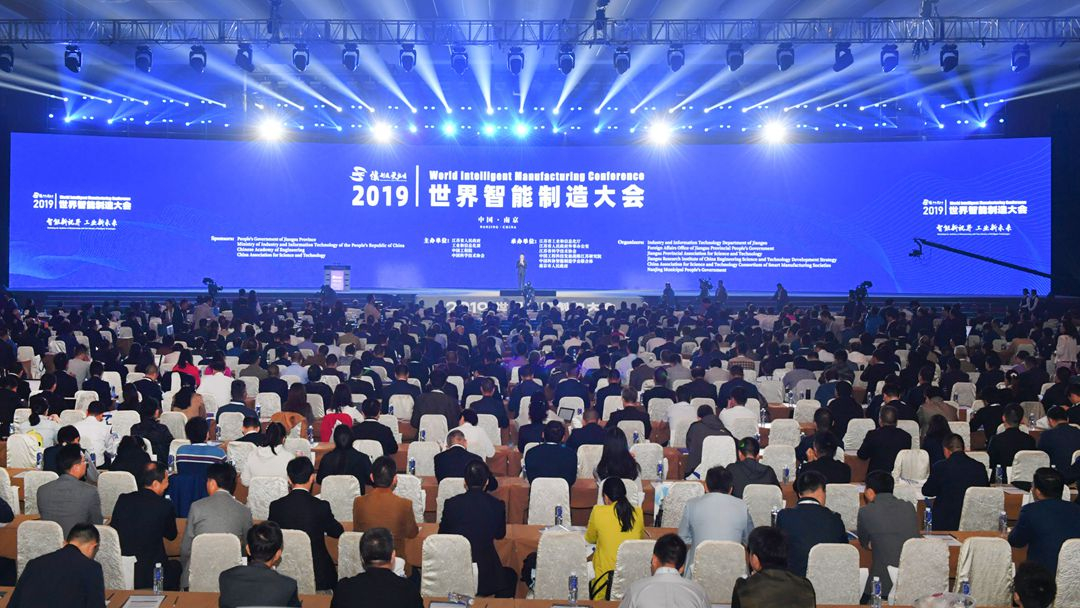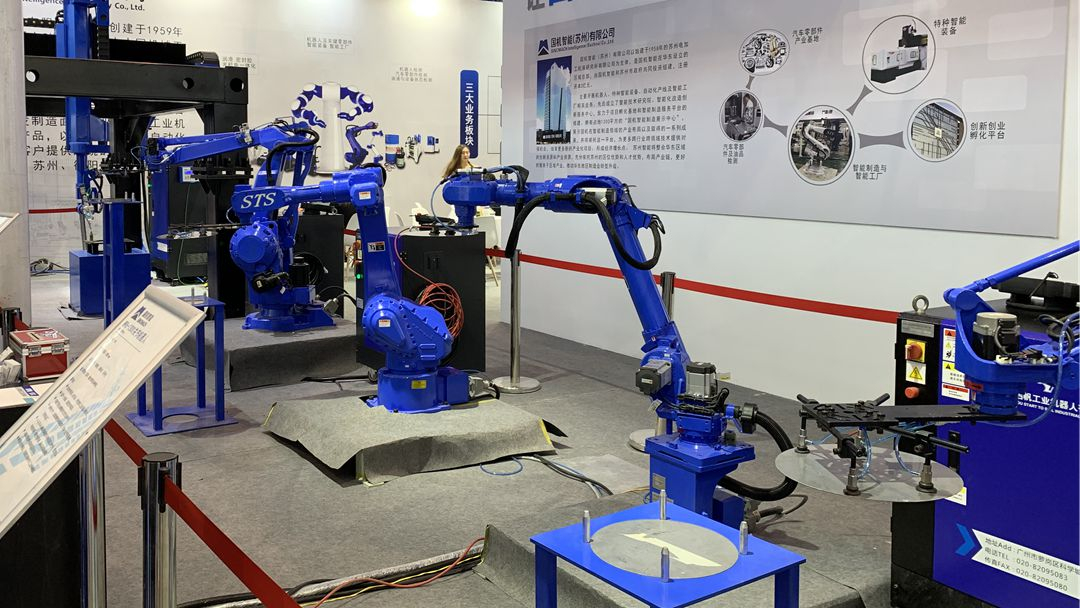The 2019 World Intelligent Manufacturing Conference (WIMC) offers a glimpse of how the factories of the future might look like: Shiny robot arms doing precise, if not acrobatic operations.
The trend is clear: manufacturing is getting smarter and the world will see more robots moving into the factories of tomorrow.
It appears that time has come for artificial intelligence (AI), augmented reality (AR), machine learning, and even more technologies that just left their incubators, in recent years, to become a reality.
"The early promoters of intelligent manufacturing are solution providers and IT companies, and the cost for adopting new technologies is high," said Xiong Yi, senior vice president at Schneider Electric (China).
"Now with technologies, companies can boost production, while reducing labor cost and defective rate," he added.

2019 World Intelligent Manufacturing Conference, October 17-19, Nanjing, east China's Jiangsu Province./CGTN Photo
2019 World Intelligent Manufacturing Conference, October 17-19, Nanjing, east China's Jiangsu Province./CGTN Photo
There are, however, gaps that need to be bridged.
Xiong points out that many intelligent manufacturing solution providers are not manufacturers themselves. "So solution providers need to better understand the manufacturing sector (… ) an event like the WIMC is an opportunity for IT companies and manufacturers to connect," he said.
Industry leaders also warn about potential overcapacity that might be brought by the sheer power of technologies.
"The more productive they are, the more efficient they become. They are pumping out more and more of the same thing that is not necessarily what the market demands," said Ian Shih, president of Rockwell Automation China. "This is a real challenge for the market. That would bring a very significant overcapacity down the road."
So it becomes essential for solution providers to better study the industry they are serving.
"Who is really going to help smart manufacturing is the one that understand each industry's pinpoint and can solve those issues, rather than simply giving you a very high-level solution or knowledge," Shih added.

Intelligent manufacturing solution providers showcased their latest robotic arms at the 2019 World Intelligent Manufacturing Conference. /CGTN Photo
Intelligent manufacturing solution providers showcased their latest robotic arms at the 2019 World Intelligent Manufacturing Conference. /CGTN Photo
Technology might also widen the disparity between wealthier countries and the less developed ones, experts warned.
Ni Jun, chairman of the Global Agenda Council on Advanced Manufacturing at the World Economic Forum, pointed out that productivity of more developed countries, that are more ready to adopt the latest technology, is bound to get even higher. So less developed countries might get further left behind.
"So it becomes important for government leaders or industry leaders in less developed countries to keep a forward-looking mind," he said, adding "but when new technologies such as 5G or artificial intelligent become more mature, technologies might help them skip to the next generation of manufacturing and jump start the economy of developing market, just like technologies like the internet did to China."
(CGTN's Cao Qingqing contributed to the story.)